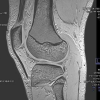
What to expect from your pregnancy ultrasound scan
An ultrasound scan is a very safe procedure that uses high-frequency sound waves to make and record images of your baby while you are pregnant. Ultrasound scans are an important part of pregnancy care. They are used to estimate your baby’s gestational age, confirm your baby’s wellbeing, and monitor your baby’s growth and development.
Two types of routine scans are recommended for all pregnancies:
- Nuchal translucency scan at 11 to 14 weeks of pregnancy
- Anatomy scan at around 18 to 20 weeks of pregnancy
You might be referred for a non-routine ultrasound scan in early pregnancy if you have vaginal bleeding, pain, or uncertainty about the date of your last period. Later in pregnancy, you may be referred for additional scans if you are carrying twins, had complications in a previous pregnancy, or if there are concerns about your health or your baby’s growth and development.
What to expect during a pregnancy ultrasound scan
Pregnancy ultrasound scans are performed by specially trained sonographers.
You will lie on the examination table and lift your top and lower your skirt or trousers to expose your abdomen. The sonographer will put ultrasound gel on your abdomen and pass a probe over your skin. The scan does not hurt, but the sonographer may have to push the probe against you quite firmly at times in order to get clear images.
For scans in early pregnancy, you may be asked to attend with a full bladder, which can cause minor discomfort. Sometimes, the sonographer may need to insert an ultrasound probe into your vagina in order to get clearer images. If this is needed, the sonographer will fully explain the procedure and request your permission. It might be mildly uncomfortable but shouldn’t be painful.
The ultrasound shows black and white images of your baby on a screen in real time. This means your baby’s heartbeat, and it’s body and limb movements can be seen as they are happening. You may see these movements on ultrasound before you can feel them yourself.
Our sonographers will do their best to explain what’s seen on the screen, but don’t be concerned if there are times when they need to stay quiet to fully focus on your assessment.
A nuchal translucency scan usually takes about 15–30 minutes and an anatomy scan can take up to 45 minutes. After your scan, we send all the information to your referring healthcare provider who will continue caring for your pregnancy. You may request a digital copy of your images at the time of your scan.
What is a Nuchal Translucency Scan?
This is a prenatal screening test done between 11 and 14 weeks of pregnancy. It uses ultrasound to measure the clear space (called the nuchal translucency) at the back of your baby’s neck. Babies with certain abnormalities often accumulate more fluid in this area, which appears as a larger clear space on the scan.
While this test does not provide a diagnosis, the result can be combined with blood test results and other information (e.g., your age and weight) to calculate the risk of your baby being born with Down syndrome or other chromosomal abnormalities. If the scan and blood tests show that your baby has an increased chance of having Down syndrome, you have the option of having further testing such as amniocentesis or non-invasive prenatal testing.
Even if you don’t wish to pursue Down Syndrome screening, this scan is recommended to confirm your baby is growing and developing normally, and to check whether you are carrying more than one.
At this scan, your baby’s age and due date can be estimated using measurements of the head, abdomen, and thigh bone. Some abnormalities may be visible at this stage, but most abnormalities are better able to be identified at the 18 to 20 weeks scan when your baby is bigger.
What is an Anatomy Scan?
This scan is done during the second trimester of pregnancy at around 18 to 20 weeks of gestation and includes a detailed assessment of your baby’s development, the amount of amniotic fluid, and the position of the placenta.
At this scan, you can usually find out your baby’s sex (unless baby is lying in a position that obscures it). If you don’t want to know your baby’s sex, tell the sonographer before the scan.
Ultrasound scans at this stage of pregnancy can detect important physical abnormalities or differences in the baby’s development. However, it’s important to remember not all abnormalities can be seen on a scan.
Sometimes scans pick up something that needs further monitoring. This doesn’t necessarily mean something is wrong with your baby. It may just mean that another scan or closer follow-up is recommended.
We know uncertain findings can be very worrying for parents and whanau. If anything concerning is seen on your ultrasound, we’ll talk you through what it might mean and arrange follow-up scans or referral to a specialist.
What are the Risks?
Ultrasound scans are safe, painless, and pose no risk to your pregnancy or baby. They have been safely used in pregnancy for over 40 years and are not known to cause any harmful effects. Unlike an X-ray, no radiation is used.
What if I Feel Nervous?
It’s completely normal to feel nervous before a pregnancy ultrasound scan. Whether you're excited, anxious, or a mix of both, our sonographers will support you and help you feel at ease.
While most scans are positive and reassuring, our sonographers know from experience that sometimes unexpected findings can occur. If anything unusual is detected, we will be here to support you and provide the best possible care for you and your baby.
Where can I get a pregnancy ultrasound scan at Canopy Imaging?
















